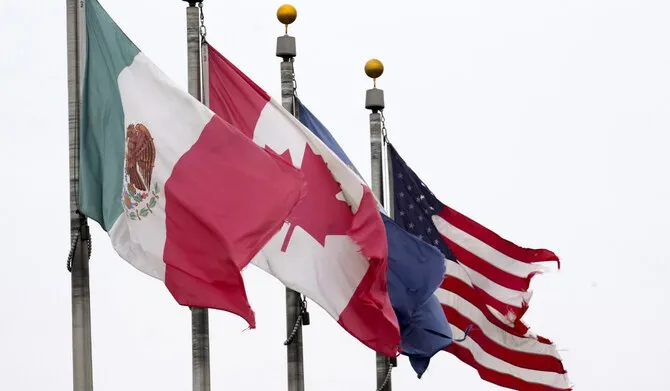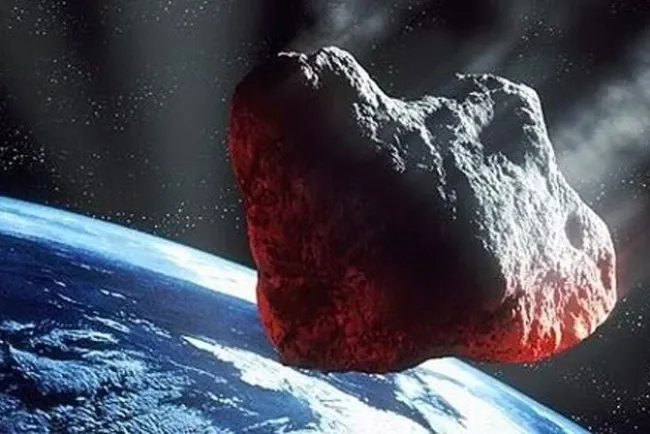Trump’s Tariff War: A High-Stakes Trade Battle with Mexico, Canada, and China
In a bold and controversial move, US President Donald Trump has imposed sweeping tariffs on imports from Mexico, Canada, and China, sparking a major trade war with these key trading partners. The decision, made at his Mar-a-Lago estate, includes a 25% tariff on all imports from Mexico and most goods from Canada, as well as a 10% duty on Chinese imports. The US administration justifies these tariffs as a means to curb the flow of fentanyl and undocumented immigrants into the country, though there are no clear benchmarks outlined for lifting these tariffs.

While President Trump acknowledged that Americans might feel some economic pain from these tariffs, he argued that the long-term benefits to national security and the country's economic interests would outweigh the temporary disruptions. However, the decision has already triggered swift retaliation from all three countries involved.
Retaliation from Affected Countries
-
Canada: Prime Minister Justin Trudeau immediately responded by imposing 25% tariffs on $155 billion worth of US goods, targeting items like alcohol, clothing, and furniture. Trudeau, who has not spoken with President Trump since the tariff announcement, criticized the move, stating that the better path for the US was to partner with Canada rather than punish it. He emphasized that this tariff escalation would split the two nations apart instead of fostering cooperation.
-
Mexico: Mexican President Andrés Manuel López Obrador ordered his government to implement a mix of tariff and non-tariff measures to protect Mexico’s interests. Goods ranging from fresh produce to vehicles, clothing, avocados, and electronics are expected to become significantly more expensive for US consumers, potentially leading to higher prices across various sectors in the US.
-
China: In response, China has filed a World Trade Organization (WTO) complaint and pledged to take corresponding countermeasures. With a large trade surplus with the US, China’s retaliation could have significant global economic repercussions.
Economic Implications and Warnings
Economists and business groups have raised concerns over the potential economic consequences of these tariffs. The US Chamber of Commerce called the move a tax increase on American families, warning that it would drive up the prices of everyday goods, from cars to electronics, and disrupt supply chains. The energy sector, agriculture industry, and retailers have all voiced alarms about the negative impact on their businesses and the broader economy.
In addition, the inclusion of a clause to raise tariffs even higher if countries retaliate suggests that the trade war could escalate quickly, causing further economic strain. Despite these warnings, President Trump has remained steadfast, asserting that the measure is necessary for national security.
The Risk of a Full-Scale Trade War
Harrison Falkner, a journalist and host of Ratio on Truth North, expressed concerns about the consequences of this escalating trade war. He highlighted that a trade war could lead to significant job losses, particularly in Canada, with potentially hundreds of thousands of Canadians losing their jobs. At the same time, the US relies heavily on Canadian crude oil and critical minerals for its military and economy, suggesting that the stakes are high for both nations.
Falkner also pointed out the discrepancy in the tariffs, where Canada, a crucial ally in the energy sector, is facing stronger tariffs than China, a country involved in a trade conflict over various issues. This raises questions about the true motives behind these measures, particularly given the focus on border security and fentanyl.
Conclusion
The tariff war ignited by President Trump could have far-reaching consequences, not only for the countries directly involved but also for the global economy. While the White House asserts that the tariffs are necessary for securing national interests, the retaliatory measures from Mexico, Canada, and China could escalate tensions and disrupt international trade in a significant way.
As businesses and consumers brace for the impact, the future of US trade relations with its key partners hangs in the balance. The coming weeks and months will likely determine whether this trade war will lead to a long-term reconfiguration of global trade patterns or if a resolution can be reached.
What are your thoughts on the long-term effects of this trade war on global relations and domestic economies?
What's Your Reaction?















